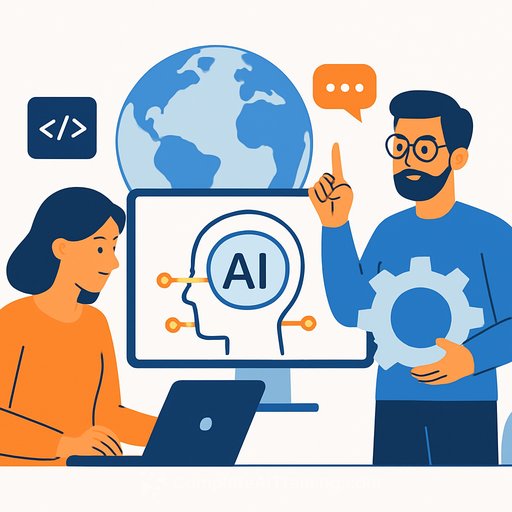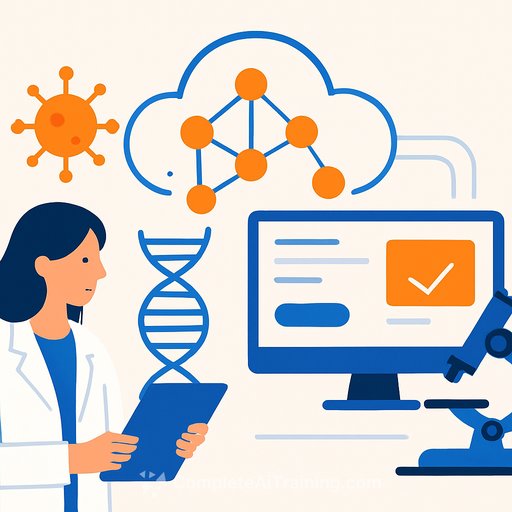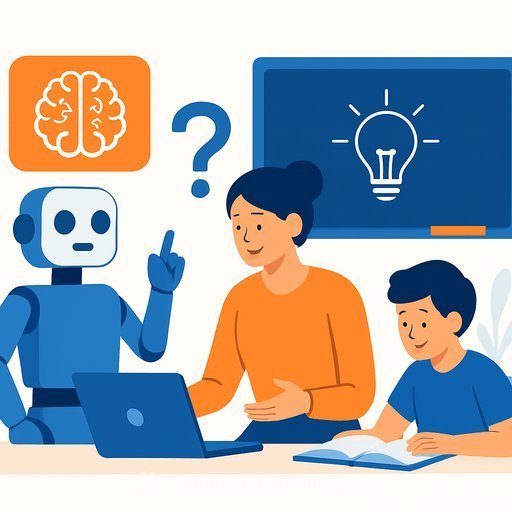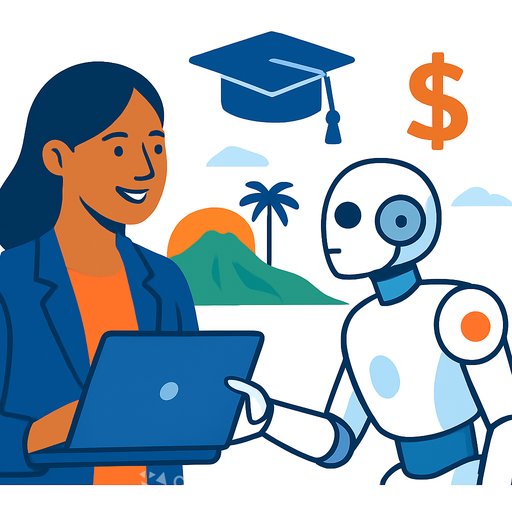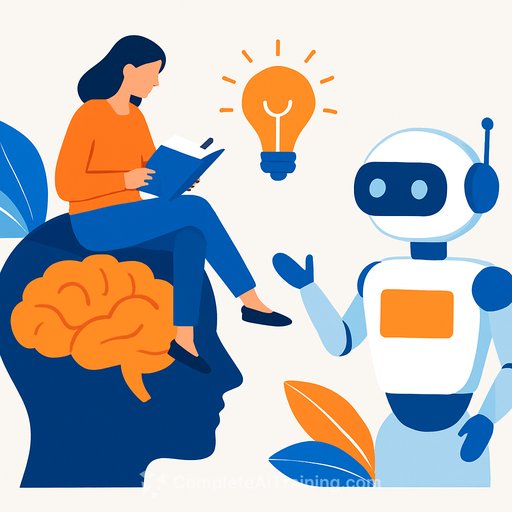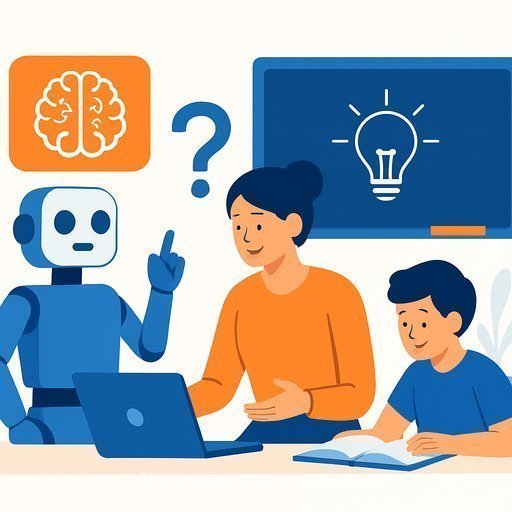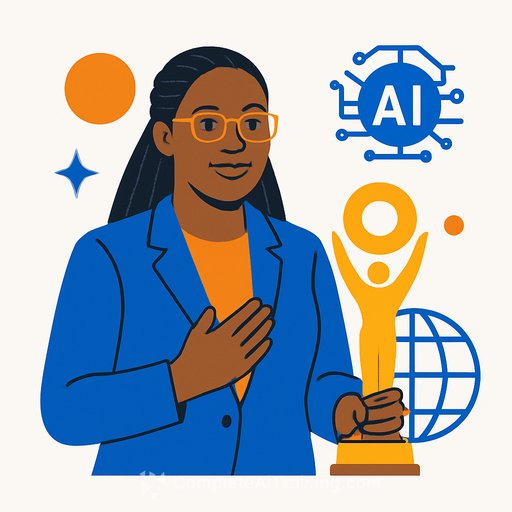Transforming Computer Science Education in the Age of AI
UC San Diego has launched the GenAI in CS Education Consortium to help educators update computer science courses for an AI-first workflow. Backed by $1.8 million from Google.org, the initiative connects education researchers, nonprofits, industry, and academia across dozens of countries. The goal is simple: help thousands of faculty teach with generative AI so tens of thousands of students graduate fluent in the tools they'll actually use.
Generative AI is changing how software gets written and reviewed. Industry now expects new engineers to be fluent with tools like Google Gemini, ChatGPT, and GitHub Copilot. Many instructors see what's happening; the question is how to adapt their courses this year-not five years from now.
A global effort led by UC San Diego
The consortium is led by UC San Diego, bringing together the Jacobs School of Engineering and the School of Social Sciences, in collaboration with faculty at the University of Toronto. It is housed in UC San Diego's Center for Research on Education, Assessment, and Teaching Excellence (CREATE).
"UC San Diego has been at the forefront of artificial intelligence research for decades, paving the way for groundbreaking innovations that power today's AI systems," said Chancellor Pradeep K. Khosla. "From the pioneering work in the 1970s that laid the foundation for modern AI, to our current advancements in computer science and education innovation, UC San Diego remains a driving force in AI research and its applications. We are grateful to Google.org for their visionary support, which will enable us to build on our legacy of AI leadership and shape the future of education for programmers and beyond."
The consortium launched with an August summit at UC San Diego that connected organizations and institutions from North America, Europe, and Africa. "We are really excited to bring together such an incredibly diverse group of organizations and people," said Beth Simon, teaching faculty in UC San Diego's Department of Education Studies and consortium co-leader.
Why this matters for your curriculum
- Skill shift: Students still need fundamentals, but must now learn to scope tasks for AI, critique model output, and debug with AI in the loop.
- Industry fluency: Employers expect engineers to use AI responsibly and effectively from day one.
- Assessment: Courses need policies, prompts, and grading strategies that account for AI assistance without diluting learning outcomes.
- Equity: Shared resources help institutions with fewer staff or budgets implement effective AI teaching practices.
From course design to classroom practice
The consortium is providing six turnkey courses that integrate generative AI, five funded by Google.org. Three were developed by UC San Diego faculty. The intention is not copy-paste syllabi, but rapid adaptation: take what works, adjust to local context, and share results back.
"We created this consortium to bring together leading minds in computer science who are focused on integrating generative AI into the computer science curriculum," said Leo Porter, professor in UC San Diego's Department of Computer Science and Engineering and consortium co-leader. Daniel Zingaro, teaching professor at the University of Toronto and co-leader, added, "These courses exist... we need to get the word out that they're available for adoption and adaptation."
Porter and Zingaro coauthored "Learn AI-assisted Python Programming: With GitHub Copilot and ChatGPT." The book helped kick-start introductory courses that explicitly teach AI-assisted coding, both at UC San Diego and beyond.
Teaching the tools of tomorrow
UC San Diego has already been teaching programming with large language models in core CS classes and will continue to offer both introductory and advanced courses this academic year. The emphasis is clear: students should learn when to use AI, how to prompt, how to evaluate output, and how to document collaboration with AI-much like any other tool in a modern engineering stack.
"Our job is to really serve as a catalyst to bring together the technology, the resources and the industry perspective," said Jessica Hill, postsecondary and workforce lead at Google. Ernest Holmes, a technical program manager at Google, noted that members will deploy resources over the next year and report back results. Google.org program managers Jenn Marroquin and Erin Spaulding emphasized reach and access so students worldwide benefit.
What the consortium offers now
- Turnkey, adaptable course materials for AI-integrated CS instruction.
- A global network of faculty and organizations with shared practices and evidence.
- Guidance on classroom policy, ethics, academic integrity, and tooling setup.
- Opportunities to pilot resources and feed outcomes back into the community.
Practical next steps for educators and department leads
- Audit syllabi for explicit AI learning objectives: prompting, evaluation, error analysis, and documentation.
- Update assessments to separate concept mastery from AI usage; include oral checks or code walkthroughs where needed.
- Adopt a "disclose AI use" policy with examples of acceptable and unacceptable assistance.
- Run small pilots before full rollout. Measure learning outcomes, student confidence, and time-on-task.
- Provide optional AI labs so students learn tool limits and failure modes safely.
How to engage
Departments can connect with the consortium to pilot courses, contribute findings, and collaborate on research. Instructors can start by integrating one AI-assisted module, collecting data, and iterating once per term. Keep what works. Share the rest so others move faster.
If your team needs structured upskilling for AI-in-coding workflows, explore this practical certification option: AI Certification for Coding.
The bottom line
Generative AI is now part of how software gets built. UC San Diego's GenAI in CS Education Consortium-supported by Google.org-gives educators the courses, community, and evidence to teach it responsibly. The sooner students practice AI-assisted engineering with clear guardrails, the better prepared they'll be for the jobs waiting for them.
Your membership also unlocks:

